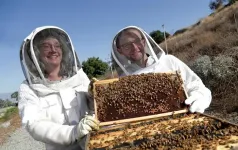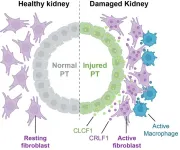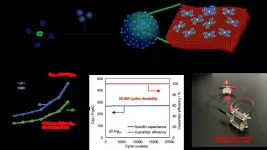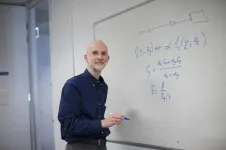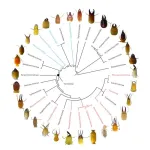Weather in deep space -- Trinity astrophysicist wins European Research Council Starting Grant
2024-09-05
(Press-News.org)
Drs Johanna Vos has won a highly prestigious European Research Council (ERC) Starting Grants to pursue research aimed at better understanding weather patterns in extrasolar worlds deep in the galaxy.
Dr Vos’ project: Exometeorology: Probing Extrasolar Atmospheres (Exo-PEA)
Over the past 30 years, astronomers have uncovered thousands of new extrasolar planets, which vary from small, rocky worlds, to giant planets like Jupiter. Additionally, lots of isolated or free-floating worlds have been discovered. We have already learned that the atmospheres of these strange worlds are highly complex, hosting a range of weather processes.
The launch of the James Webb Space Telescope (JWST) enables a new era in our understanding of extrasolar atmospheres. By providing observations of unprecedented quality, this ground-breaking facility opens a new window into these atmospheres.
Dr Vos was recently awarded three observing programmes as PI with the JWST that form the basis of her ERC project. By combining new data from these programmes with state of the art computational and data-driven techniques, her team will reveal the dominant atmospheric processes that give rise to weather on giant extrasolar worlds.
Dr Vos, Assistant Professor in Trinity’s School of Physics, said: “I am honoured to have been awarded this ERC Starting Grant and for the opportunity to expand the breadth and scope of research in my group. This funding will allow me to build a team that will make use of ground-breaking data from JWST to provide key insights into the atmospheres of worlds beyond our solar system.”
ERC Starting Grants draw funding from the EU’s Horizon Europe programme to enable excellent scientists, with up to seven years of post-PhD experience, to pursue their most promising ideas. The funds also enable recipients to significantly grow their research teams over the five-year duration of the projects they support.
END
[Attachments] See images for this press release:

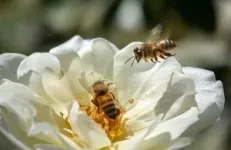
ELSE PRESS RELEASES FROM THIS DATE:
2024-09-05
Iliana Ivanova, Commissioner for Innovation, Research, Culture, Education and Youth, said: “The European Commission is proud to support the curiosity and passion of our early-career talent under our Horizon Europe programme. The new ERC Starting Grants winners aim to deepen our understanding of the world. Their creativity is vital to finding solutions to some of the most pressing societal challenges. In this call, I am happy to see one of the highest shares of female grantees to date, a trend that I hope will continue. Congratulations to all!”
President of the European Research Council, Prof. ...
2024-09-05
Dr Michael-John Dolan has won a highly prestigious European Research Council (ERC) Starting Grants to pursue research aimed at uncovering the secrets of brain disorders and repair.
Dr Dolan’s project: MICRODISSECT: Dissection of Microglial State Biology in Brain Repair
Dr Dolan’s research will focus on microglia, the brain's resident immune cells, which can form distinct subtypes, or “states” – especially during brain damage, disease, or repair. While microglia are crucial for regulating neuroinflammation and brain repair, these states are poorly understood ...
2024-09-05
If you upset one bee, what determines whether the entire hive decides to avenge her grievance? A $1.2 million grant will support UC Riverside scientists in answering questions like these about how honeybees communicate.
Every third bite of food you eat has been pollinated by a bee. They are central to worldwide food production, but there have been an alarming number of die-offs recorded since 2006. One solution to this issue is the use of special survivor bees that are more resistant to pests and diseases that are killing managed honeybees.
Commonly found in ...
2024-09-05
“We are extremely happy about the freshly granted ERC project for Hannah Schneider. Thereby, the European Research Agency distinguished a highly talented young researcher, who develops new ideas and approaches to explore anatomical roots traits that are highly relevant for stress tolerance and resource efficiency of crops”, says Prof. Dr. Nicolaus von Wirén, Managing Director at IPK. “The new ERC project of the scientist from Minnesota, whom we allured to IPK just last October, follows the two previous ERC-Starting Grant holders Martin Mascher and Stefan Heckmann and will bring great international visibility to root research at IPK.”
“The ...
2024-09-05
A study published in Nature Communications provides new insight into how damaged cells interact within disease-promoting microenvironments following acute kidney injury, or AKI. With limited treatment options, AKI frequently progresses to chronic kidney disease (CKD), which affects more than 1 in 7 U.S. adults—an estimated 37 million people.
The new findings may contribute to future efforts to prevent CKD, which can lead to kidney failure.
The study brought together scientists from Andy McMahon’s lab at USC and Long Cai’s lab at Caltech, with support from a USC Broad Innovation Award that funded the cross-institutional research collaboration.
In ...
2024-09-05
Honesty is the best policy… most of the time. Social norms help humans understand when we need to tell the truth and when we shouldn’t, to spare someone’s feelings or avoid harm. But how do these norms apply to robots, which are increasingly working with humans? To understand whether humans can accept robots telling lies, scientists asked almost 500 participants to rate and justify different types of robot deception.
“I wanted to explore an understudied facet of robot ethics, to contribute to our understanding of mistrust ...
2024-09-05
Researchers at Tohoku University have successfully increased the capacity, lifetime durability, and cost-effectiveness of a capacitor in their pursuit of a more power-efficient future. A capacitor is a device used as part of a circuit that can store and release energy, just like a battery. What makes a capacitor different from a battery is that it takes much less time to charge. For example, your cellphone battery will power your phone instantly, but charging that battery back up to 100% when it dies is far from instantaneous.
While this makes capacitors sound like the superior choice, they have some big drawbacks that need to be overcome. Firstly, their capacity is much smaller ...
2024-09-05
New research has discovered a unique and promising avenue for diagnosing Alzheimer’s disease (AD) earlier – by analysing AD biomarkers in blood – so that the impacts of dementia can be reduced.
AD is the most common form of dementia, estimated to contribute to 60-70 per cent of cases, or more than 33 million cases worldwide, according to the World Health Organisation. Currently incurable, AD is usually diagnosed when a person is having significant difficulties with memory and thinking that impact their daily life.
University of Melbourne researcher Dr Brandon Mahan leads a group of analytical geochemists from the Faculty ...
2024-09-05
WEHI’s Bioinformatics division head, Professor Gordon Smyth, has won the 2024 Eureka Prize for Excellence in Research Software.
The award recognises Prof Smyth’s lead role in developing and designing the limma software package, which helps researchers detect changes in gene activity.
limma has helped researchers around the world detect changes in gene activity – a crucial element to finding new treatments for a range of diseases, like cancer – and has been used or cited in more than 70,000 published papers worldwide.
The Australian Museum Eureka Prizes are ...
2024-09-05
Termites have a bad reputation. Most think of them as pests, a status that isn’t helped by their recent reclassification into the cockroach family.
But not only do the termites that cause serious problems for humans only make up 3.5% of all termite species, termites also serve as crucial ecosystem engineers, maintaining the infrastructure of various environments. Like earthworms, they circulate nutrients by decomposing plant materials, and they play the important role of bioturbators: much like plowing a field, termites aerate the soil, expose underground nutrients, and let water infiltrate deeper layers of soil – ...
LAST 30 PRESS RELEASES:
[Press-News.org] Weather in deep space -- Trinity astrophysicist wins European Research Council Starting Grant



